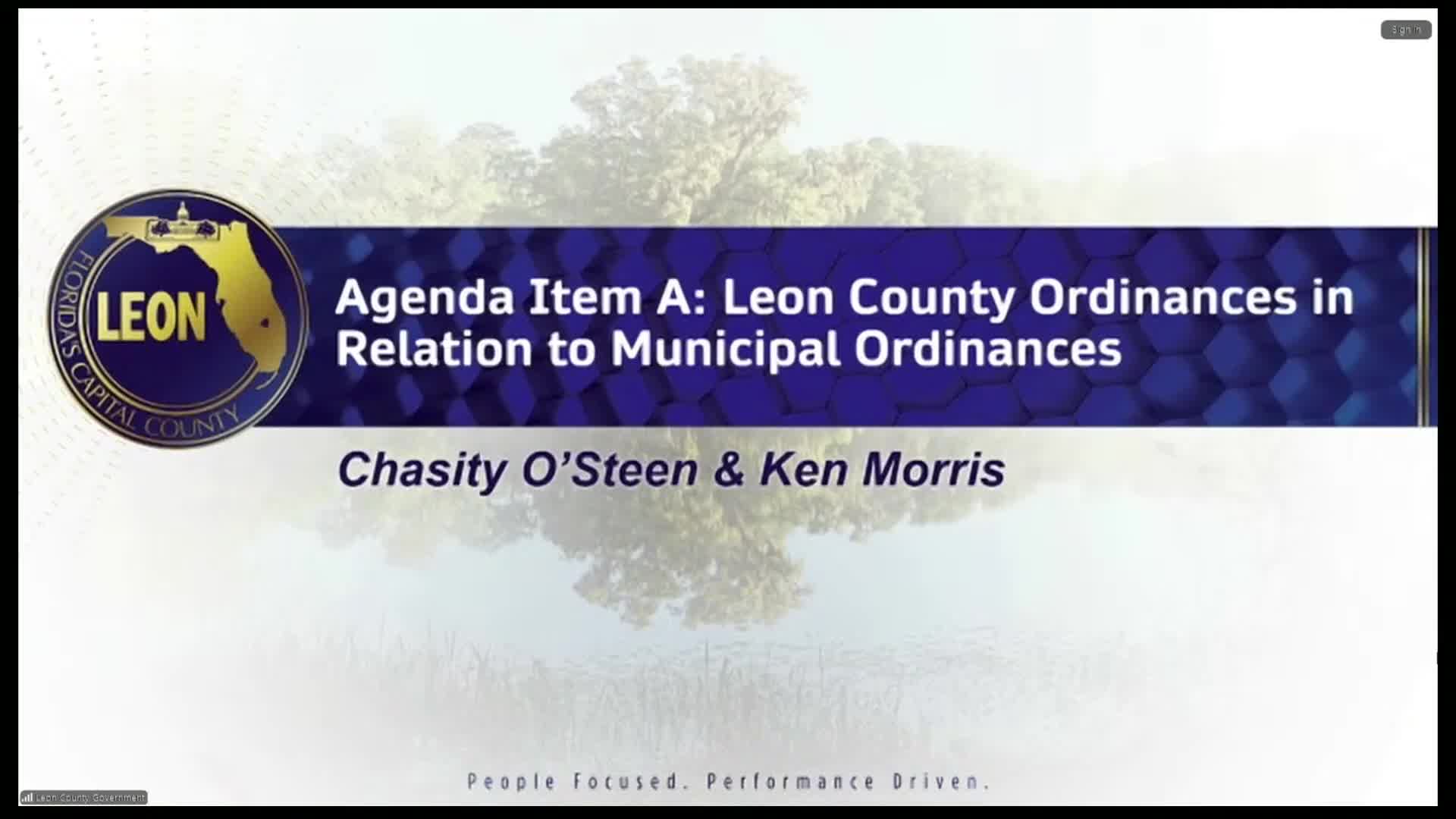Charter review committee asks staff to study option letting county ordinances prevail in conflicts with municipal law
Get AI-powered insights, summaries, and transcripts
Subscribe
Summary
The Leon County Charter Review Committee voted to ask staff to study concrete examples where county and municipal ordinances conflict and to return with options rather than immediately advancing a broad charter amendment.
The Leon County Charter Review Committee voted to ask staff to study concrete examples where county and municipal ordinances conflict and to return with options rather than immediately advancing a broad charter amendment.
The committee considered a county administration request to evaluate whether county ordinances should prevail in the event of a conflict with municipal law. County Attorney Chastity Osteen told the committee that Florida’s Constitution (Article 8, Section 1(g)) gives charter counties the authority to specify which local ordinances prevail. She noted Leon County’s charter currently says municipal ordinances prevail within the City of Tallahassee except where the charter establishes minimum countywide environmental standards (section 1.62), which set a countywide floor.
Why it matters: committee members said the issue affects everyday matters that confuse residents and businesses—addressing/street naming, emergency management and overlapping regulatory standards were cited repeatedly. Staff and the county attorney warned that a charter provision granting county precedence would not remove legal limits (for example, transfer‑of‑power rules under the state constitution) and that a change could require careful reviewing of existing city and county codes.
Staff presentation and examples: county staff and counsel presented legal background, a comparative review of Florida charter counties and local case studies. Ken Morris and county counsel described a recent local dispute over a street renaming where the city adopted its own ordinance for the portion within municipal limits. Staff also noted the 2010 charter amendment that established minimum environmental standards as an example of a subject‑specific charter provision that preserved municipal authority to adopt stricter rules.
Committee concerns and process questions: members asked how any change would be enforced, whether a local reconciliation or mediation process could be required before a conflict is treated as decided, and what the fiscal implications might be. County Attorney Chastity Osteen explained that Chapter 164 (intergovernmental dispute procedures) provides an intermediate reconciliation step in some disputes, but that a charter clause saying the county ordinance prevails would make that the legal tie‑breaker once a county ordinance is adopted and filed.
What the committee directed: rather than advancing a draft amendment now, the committee amended a motion to ask staff to return with a targeted analysis. The direction asked staff to identify concrete conflict points staff already knows about, provide examples (e.g., street naming/addressing, alcohol sales hours, towing or other ordinances flagged during the meeting), and present possible solutions and process recommendations for the committee to consider.
Next steps: staff will prepare the targeted analysis and return to a future committee meeting. The committee emphasized it wants specific examples and potential remedies rather than a wholesale rewrite of the charter. The committee did not set a deadline for the staff work other than asking for the analysis at an upcoming meeting.
